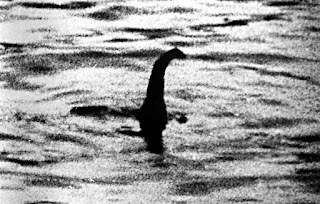3Logical Paradoxes!
Crocodile Paradox
Moore's Paradox
Ship of Theseus
Moore's Paradox
Ship of Theseus
The crocodile paradox, also
known as crocodile sophism, is a paradox in logic. It is stated as, a crocodile
that has stolen a child, promises his parents that their child will be returned
if and only if, they correctly predict what the crocodile will do next.
The statement and the course of action is
logically smooth and simple if the parents guess that the child will be
returned, but a dilemma
arises for the crocodile if the parents guess that the child will not be
returned.
Let’s try to understand this by the following two cases:
Suppose that the parents guess that their child will not be returned.
Case1: Now, if the crocodile decides not to return the child and keep
him with it then, he violates his terms:
the parent's prediction has been validated, and the child should be returned.
Case 2: But, in the case that the crocodile decides to give
back the child, he still violates his terms, even if this decision is based on
the previous result: the parent's prediction has been falsified. So, as
the parents have guessed wrong, the crocodile should not return the child.
Therefore, the question of what the crocodile should do
is paradoxical, and there is no proper
justifiable solution.
Moore’s Paradox
Another such paradox is the Moore’s paradox which
questions about how the situation or acceptance of statements changes as we
hear the listen the same topic from other person’s point of view. It is stated
as,
Suppose you are sitting in a windowless
room. It begins to rain outside. You have not heard a weather report, so you
don’t know that it’s raining. So you don’t believe that it’s raining. Thus your
friend McGillicuddy, who knows your situation, can say truly of you, “It’s
raining, but MacIntosh doesn’t believe it is.” But if you, MacIntosh, were to
say exactly the same thing to McGillicuddy—“It’s raining, but I don’t believe
it is”—your friend would rightly think you’d lost your mind. Why, then, is the
second sentence absurd? As G.E. Moore put it, “Why is it absurd for me to say
something true about myself?”
This problem helped to stimulate a new
branch of philosophy called as pragmatics.
Ship of Theseus or the “Theseus paradox” is a thought experiment which
raises a question that, whether a ship or any standing object remains the same
object with all of its parts replaced eventually in the course of time.
First,
suppose that the famous ship sailed by the hero Theseus in a great battle has been kept in
a harbour as a museum piece. As the years go by some of the wooden parts begin
to rot and are replaced by new ones. After a century or so, all of the parts
have been replaced. Is the "restored" ship still the same object as
the original?
Second, suppose that each
of the removed pieces were stored in a warehouse, and after the century,
technology develops to cure their rotting and enable them to be put back
together to make a ship. Is this "reconstructed" ship the original
ship? And if so, is the restored ship in the harbour still the original ship
too?
It is an
interesting paradox which gave rise to other similar paradoxes. One of which is
the grandfather’s axe. It is stated as; a grandfather gives his grandson an axe
to cut wood as a gift. After some years, the wooden handle gets damaged and is replaced
by a new one. Again, after some time, the iron of axe gets corroded and the
grandson replaces it with a new one. So, the question arises, is the current
axe is still his grandfather’s axe?
Apps on play store:
Weather Time
Quizyfact
Apps on play store:
Weather Time
Quizyfact




